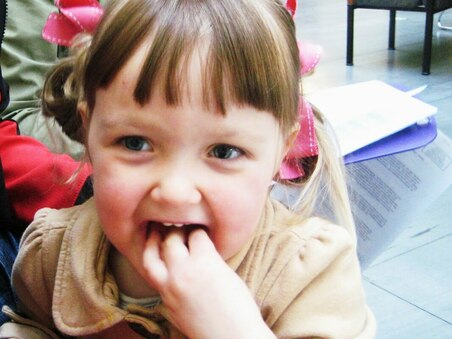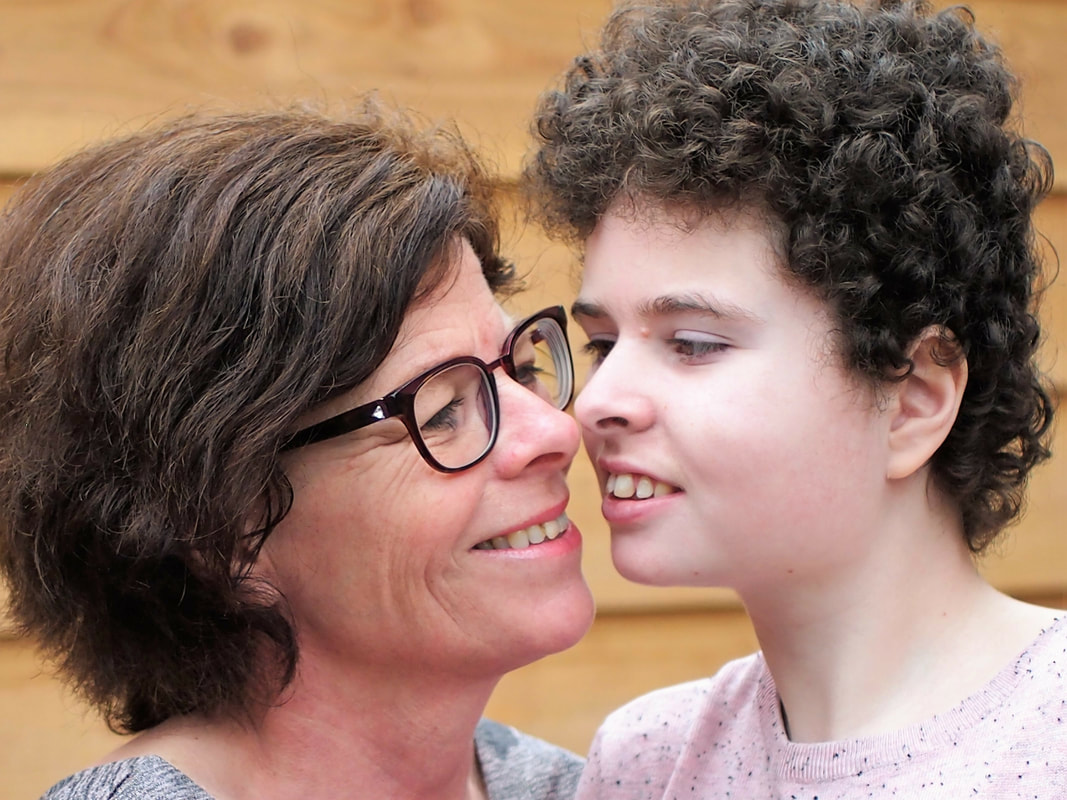 Productive Hand Movements are a Rarity Productive Hand Movements are a Rarity Life is interesting only until we are ignorant of what awaits us. Getting a preview of a movie helps us decide whether it’s worth watching the movie or not but do we desire a preview of our life too to decide whether it’s worth living or not? The very idea of it sounds terrorizing. The different stages of life offer surprises and shocks to each of us as we move in and move out of them. Individuals look forward to every phase of life with positivity and hope-both of which are crucial for human survival. Life takes a U Turn Marriage is an important stage in every person’s life as it changes many-a-people’s lifestyles and their outlook. Couples look forward to having kids after marriage and the joy expressed in a mum/dad’s face right after the little one is born is irreplaceable. Right after birth every mom’s first concern is to ensure that her child is healthy both mentally and physically. Physically it’s possible to check for body parts, features and organ functioning. But mentally how is it possible to check a newborn infant. Crying after birth is a simple sign that the infant is like every other baby born, hearing skills can be checked by the physician and ensuring a normal eyesight too is possible to quite an extent. But cognitive skills are an area that can never be ensured upon until the child grows gradually. Parents love to spend as much time as possible with their little one and the newborn too responds to all the attention with giggles and gurgles. While all seems to be going good sometimes after the infant’s sixth month of birth things start taking a roundabout and development of the child starts sulking. When the concerned parents visit the pediatrician, the child is diagnosed with Rett’s syndrome. Rett Syndrome Rett syndrome is a neurodevelopmental disorder that mostly affects girls. This is misdiagnosed as autism, cerebral palsy or global developmental delay as it is characterized by normal early development but followed by a decline in normal growth, loss of hand coordination and movement, delayed brain development, common occurrence of seizures, improper head growth and problems with walking. Even before serious symptoms are visible after 6-8 months of birth there might be occurrences of syndrome-related symptoms earlier too. This includes loss of muscle tone (hypotonia), feeding difficulties, awkward limb movements, improper crawling and reduced eye contact. Later, mental and physical symptoms start occurring and the child even loses the ability to speak. Autism-related symptoms such as walking on toes, grinding teeth, hyperventilation, cognitive disabilities and seizures are commonly observed in children with Rett syndrome. Stages The syndrome is best described in four stages for clarity and understanding. Stage 1: Known as early onset it begins when the child is between 6 and 18 months of age. There are signs of slowing development such as less eye contact, delays observed at every stage of development such as sitting and crawling, decreased head growth and hand wriggling. Stage 2: Known as rapid destructive stage it begins when the child is between 1 and 4 years of age. Loss of purposeful hand skills, language problems, repeated clasping of hands, clapping them or bringing them to the mouth is seen but these disappear once the baby falls asleep. Similar to autism, some children display lack of interest in social interaction and speech. Breathing difficulties, hyperventilation and walking problems are also seen. Stage 3: Known as pseudostationary stage this begins between 2 and 10 years of age and many girls remain in this stage for years together. Seizures, motor deficits and apraxia (this is the most disabling symptom which includes inability to perform motor functions thereby leading to disturbed body movements) are noticed during this stage. Its also the stage during which signs of crying, irritability and autism-like disorders decline while alertness, interest in people and things around, communication and attention span increase. Stage 4: Known as late motor deterioration stage, this lasts for years together or even decades. Rigidity, decreased mobility, muscle weakness, inability to walk and scoliosis (development of a spinal curve where the spine begins to move left or right) are observed. Communication and brain development don’t worsen any further while repetitive hand movement might improve. Causes Most cases in the syndrome are caused by a genetic mutation in the MECP2 gene found in the X chromosome. This gene is bestowed with the work of producing the MeCP2 protein that is required for brain development. The protein is not produced in the right quantities and the gene does not function properly thereby leading to Rett syndrome. This disease is not hereditary and almost 99% cases occur spontaneously. The effect of the syndrome varies depending on the type of mutation, location and severity of the mutation. It is common that two girls with the same mutation and of the same age express the syndrome differently. Diagnosis Rett syndrome is diagnosed based on the child’s symptoms and a genetic blood test can also help in identifying the genetic mutation. This syndrome affects 1 of every 10,000 to 15,000 female births. Treatment There is no cure for Rett syndrome and physicians and parents primarily focus on managing the symptoms. A combination of occupational therapy, physical therapy and speech therapy provided can help the kid with feeding, dressing and walking. Medications are prescribed to control seizures and hyperventilation. Nutrition support might be needed to manage weight of the affected kid. Dietitians and nutritionists at www.firsteatright.com can help in this process where the child is given a proper diet that takes care of nutrition needs as well as prevents weight gain. There are challenges associated with the disease and the patient needs 24*7 support for surviving. But these kids brim with emotions and can understand information shared with them. Its only that they can neither reciprocate their understanding nor convey the message across to the other person. With love, care, support, therapy and help these children can attend school, learn from activities and communities and lead a meaningful life in some way. Comments are closed.
|
AVOID FRAUD. EAT SMART.+91 7846 800 800
AuthorDietitian & Nutritionist Dr. Nafeesa Imteyaz. Archives
July 2024
Categories
All
Dr. Nafeesa's Blog @blogspot |
- Home
- Written Testimonials
- Consult
- Clinics
- Blogs
-
Diet & Nutrition
- Diabetes Reversal
- IVF IUI not needed for PCOS PCOD Infertility
-
Medical Nutrition
>
-
Disease & Conditions
>
- Infertility | PCOS
- Diabetes Mellitus
- Cholesterol
- Hypothyroid
- Kidney Problems
- Hypertension
- Cardiovascular Diseases
- Liver Diseases
- Gastro intestinal disorder
- Cancer
- Metabolic Disorders
- Orthopedic Disorders
- Eating Disorders
- Dietary Recall
- Weight Record Filled By Clients
- Online Payment Transaction Details
- Online Clients Weight Check Form
- Our Program Package Service Charges
- Weight Record 2017 Clients
- Measurements sent by Clients
- Terms & Conditions Of Payment
- Thanks. Your Form is Submitted
- Video Testimonials
- Lifestyle & Wellness
- Lifestyle & Wellness Blog
- Allergy & Intolerance
- Weight Loss / Gain
- Weight Loss / Slimming Blog
-
Disease & Conditions
>
- Life Cycle Nutrition >
- Sports Nutrition >
- Integrity in Nutrition
- Knowledge Centre
© COPYRIGHT 2022. ALL RIGHTS RESERVED. FRST HEALTHCARE PVT LTD.
Dr. Nafeesa Imteyaz of First Eat Right clinic, is the Best Dietitian Nutritionist in Bangalore. Best Dietitian Nutritionist in Pune. Best Dietitian Nutritionist in Hyderabad. Best Dietitian Nutritionist in Chennai. Best Dietitian Nutritionist in Mumbai. Best Dietitian Nutritionist in Delhi. Best Dietitian Nutritionist in Kolkata.


